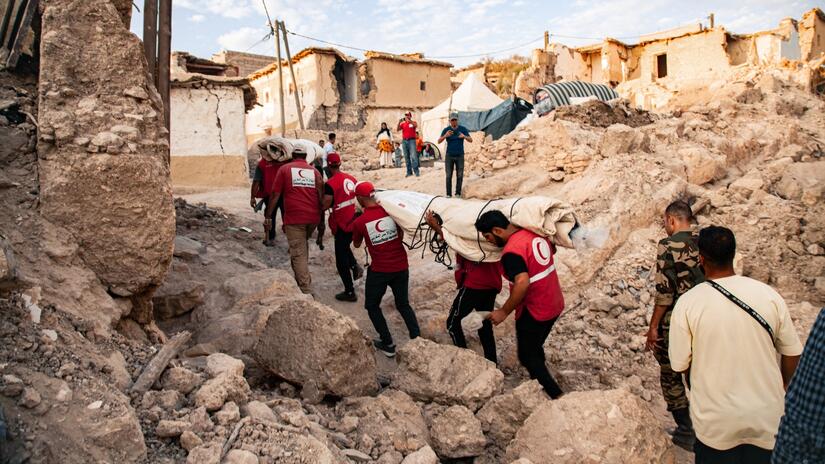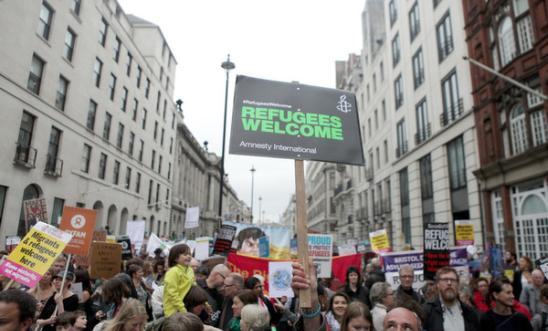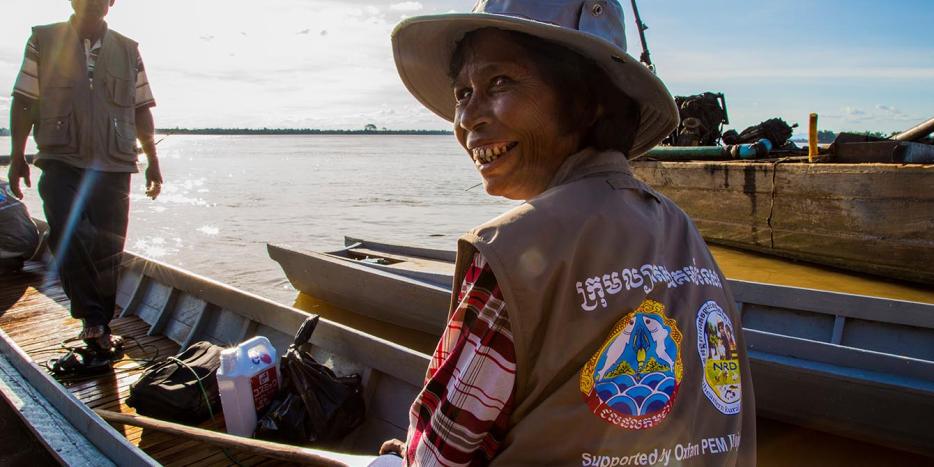In one way or another, non-governmental organisations (NGOs) play an instrumental role in contributing to peace around the world. These organisations supplement the work of governments and international organisations like the United Nations, often working in close proximity. NGOs engage with a wide diversity of issues in local and international contexts. Despite this diversity, many different NGOs around the world can be thought of as peacebuilders because they address issues that are disruptive to peace as well as promoting key foundations for it (such as education, healthcare, and human/equal rights). War, climate change, and poverty all have profound impacts on peace for individuals and how the international community imagines peace and peace building. It is critical, then, to explore the areas in which these organisations engage with peace building.
Crisis Response
When considering the work of non-governmental organisations (NGOs) in relation to peace, the first image that comes to mind might be of NGOs delivering aid in the wake of a crisis. This is perhaps the most visible way in which NGOs operate around the world, since media coverage that follows natural disasters and global conflicts will often find and highlight NGOs working to aid those affected. There are countless organisations that are active both in the midst of conflict and in its aftermath, some of the most prominent of which are the Red Cross and Red Crescent Movement and Doctors Without Borders (Médecins Sans Frontières). NGOs that address disasters seek to create pockets of peace, helping individuals and communities with personal, felt needs that reflect the situation in which they find themselves. These felt needs appear before and during conflicts and can persist long after a conflict appears to be over. Even now thirteen years removed from the 2010 earthquake in Haiti, Doctors Without Borders continues to maintain its presence in the country to address the multitude of humanitarian issues that persist as a result of natural disasters and political unrest.

Advocacy
NGOs take on peace building roles in many more ways than simply in response to crises. Organisations such as Never Such Innocence and Amnesty International build peace through advocacy or by creating platforms for those with diminished voices and who cannot advocate for themselves. The inability of individuals to advocate for themselves is detrimental to personal and global peace. Advocacy organisations build peace by restoring individual agency and drawing attention to situations in which entire groups are being oppressed. In some situations, this silencing happens by force, as seen in the Iranian government’s response to recent protests in support of women’s rights. Amnesty International, in response, used its influence to lobby governments and mobilise public support in opposition to the Iranian government. Although they have no physical power to combat the force used by oppressive governments, they can use their global platform to influence those that do have the power to create physical change for peace. NGOs like Never Such Innocence, which gives a platform to children who have experienced conflict, work similarly to increase the participation of valuable voices in dialogues about peace. Because peacebuilding requires a variety of perspectives and voices to be truly peaceful, these voices are essential.

Poverty Reduction and Education
NGOs also contribute to peacebuilding through poverty reduction, which itself can happen in many ways. Often organisations will address felt needs of communities to offer economic programs, rebuild infrastructure, and address food insecurity. These programs seek to build peace over the long term by addressing the root causes of poverty. This may include addressing poverty due to conflict, but often addresses poverty that is a result of systematic issues and an inability of individuals to break the cycle of poverty. Programs such as those from Oxfam provide food and water security and health and safety programs to protect individuals and help them to be able to safely work and earn a living. These programs not only build pockets of peace by meeting the physical needs of individuals, but also by affecting their inner peace through increased social standing and dignity. These programs can help families to be more self-sufficient and break the cycle of poverty by being able to maintain a consistent source of food, water, and income. NGOs that work in education similarly address the systemic issues that prevent individuals from breaking out of the cycle of poverty. Organisations such as Book Aid International work on this issue by providing books and training teachers in communities that may not have access to strong education or libraries. In a similar way to the Oxfam’s work, Book Aid’s work addresses a fundamental way in which many individuals in poverty are underserved. A lack of education and a lack of access to resources prevents those who would pursue higher education from having that opportunity. Education provides individuals with specific skills that they can use to find jobs, keep themselves healthy, and thus break the cycle of poverty, which itself can lead to conflict and prove a barrier to people experiencing peace.
Environment
NGOs that work with environmental concerns build peace by creating a more liveable planet and increasing the possibility of peaceful life to continue on Earth for years to come [1] . As governments internationally can be slow and uncoordinated in addressing these immediate concerns, NGOs can step in to create an impact. Greenpeace, one of the largest environmental NGOs, is an example of how environmental organisations work to build peace by protecting the environment. The group uses protests, petitions, and government lobbying to address concerns of climate change, renewable energy, environmental destruction, and sustainable fishing practices. By taking action to protect the environment, Greenpeace and similar organisations are broadly building peace for the future. By engaging with climate injustices today, these organisations create systematic changes that lay the foundations for future climate peace. It is important to note, however, that some environmental organisations advocate for peace in controversial ways that create conflict. Groups such as Just Stop Oil and Extinction Rebellion have been accused of vandalism, criminal damage, and have seen protestors arrested for their tactics to bring attention to environmental causes [2]. Though these groups are not NGOs, consideration of their work brings to light a more complete picture of how environmental sustainability is pictured.

What do you think?
- How are NGOs seen as peacebuilders? In the media? By individuals? By governments?
- How does the peacebuilding done by NGOs differ from efforts by states and international institutions (like the United Nations)?
- What are the challenges that NGOs face in peacebuilding?
- Are there any issue areas or problems vital to peacebuilding that are not being effectively addressed by NGOs at present? How might an organisation go about addressing those issues?
- How can NGOs respond to immediate issues while also building future peace?
If you enjoyed this item in our museum…
You might also enjoy Observation as a Tool for Peace in Palestine and Israel, The Place of Neutrality in Peace Work, ‘Building Trust from the Inside Out‘, and ‘NGOs and Peacebuilding in the Federal Response to Hurricane Katrina‘.
Samuel Huff, December 2023